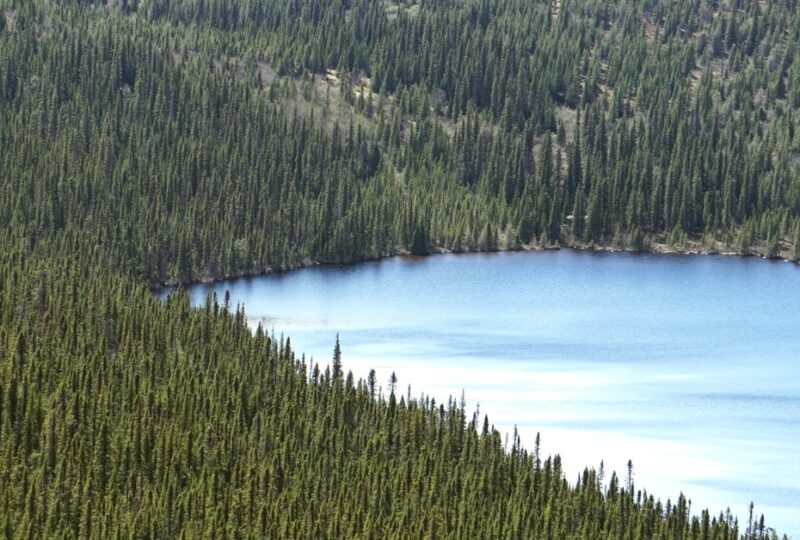Project description
Higher severity forest fires lead to greater overall emissions of carbon dioxide (CO2) and have the potential to release “old” carbon previously buried in deeper layers of soil and permafrost. The ability to evaluate boreal fire severity over the recent geological past would provide a much-needed historical context that is currently lacking from modern estimates of burn depth. Through a series of experiments and application using dated lake sediment cores, this PhD project will work on developing and improving geochemical techniques to understand boreal fire severity over time. The results from this research will inform national policies that promote adaptation and resilience in boreal communities under a changing climate.
The student’s tasks will be to:
- Determine concentrations and compound-specific isotope values of fire biomarkers from previously collected lake sediment cores.
- Carry out controlled burn experiments to determine effect of different variables (e.g., temperature, vegetation type) on distributions and isotopic values of fire biomarkers.
- Integrate geochemical data with other tools used to examine historical boreal fires in lake sediments (e.g., charcoal counting).
- Assist with method development into isotopic analyses by Orbitrap mass spectrometry – a novel technique with the potential to provide estimates of burn temperature.
This research is part of the multidisciplinary project “Development of innovative geochemical tools for understanding historical boreal fire severity” funded by Natural Resources Canada’s (NRCan’s) GEM-GeoNorth program. This project brings together a team of researchers from across the Geological Survey of Canada (NRCan) and INRS.
Start date
Spring or fall 2025
Research supervision
- Prof. Pierre Francus, Centre Eau Terre Environnement, INRS
- Dr. Jason M. E. Ahad, Geological Survey of Canada, Natural Resources Canda (NRCan), GSC-Québec
Study program
PhD in Earth or Water sciences (program details in French only), Eau Terre Environnement Research Centre, INRS
Funding
A doctoral fellowship of $28,000 per year is available for 3 years from NRCan’s Research Affiliate Program. Candidates must apply separately for this scholarship following enrollment in the PhD program at INRS.
Required qualifications
A master’s degree in geology, geochemistry, chemistry or environmental sciences from a recognized Canadian or foreign university, and:
- An excellent academic record.
- Ability to work in a research laboratory.
- Ability to work alone and in a team.
- Ability to communicate effectively within the team and with academic and governmental partners.
Ability to communicate results effectively with the public
Location
Eau Terre Environnement Research Centre
490 de la Couronne Street
Quebec City, Quebec G1K 9A9
Canada
How to apply
Please use the form below to send your application including the following documents in PDF: 1) a resume; 2) a cover letter; 3) all university transcripts; 4) a list of practical and technical skills; 5) the names and contact details of two referees.
The selection will begin upon receipt of applications and will continue until the candidate has been recruited.

